Best AI tools for< Demonstrate Roi >
13 - AI tool Sites
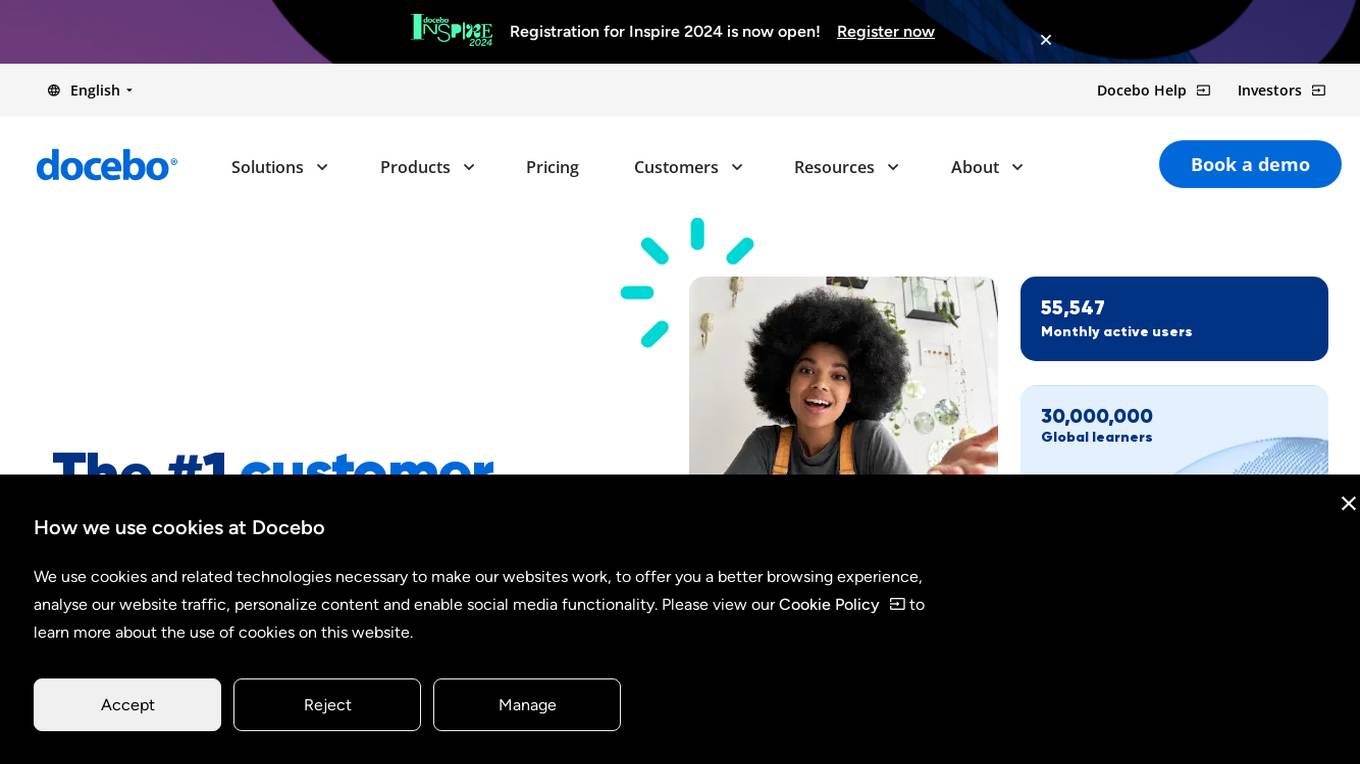
Docebo
Docebo is an AI-powered learning platform designed for businesses to deliver innovative and valuable learning experiences. It offers solutions for employee onboarding, compliance training, sales enablement, talent development, customer education, partner enablement, and member training. With features like AI-powered learning, content creation, embedded learning, learning intelligence, and a generative AI LMS, Docebo aims to help organizations drive engagement, productivity, advocacy, and connection with their stakeholders.
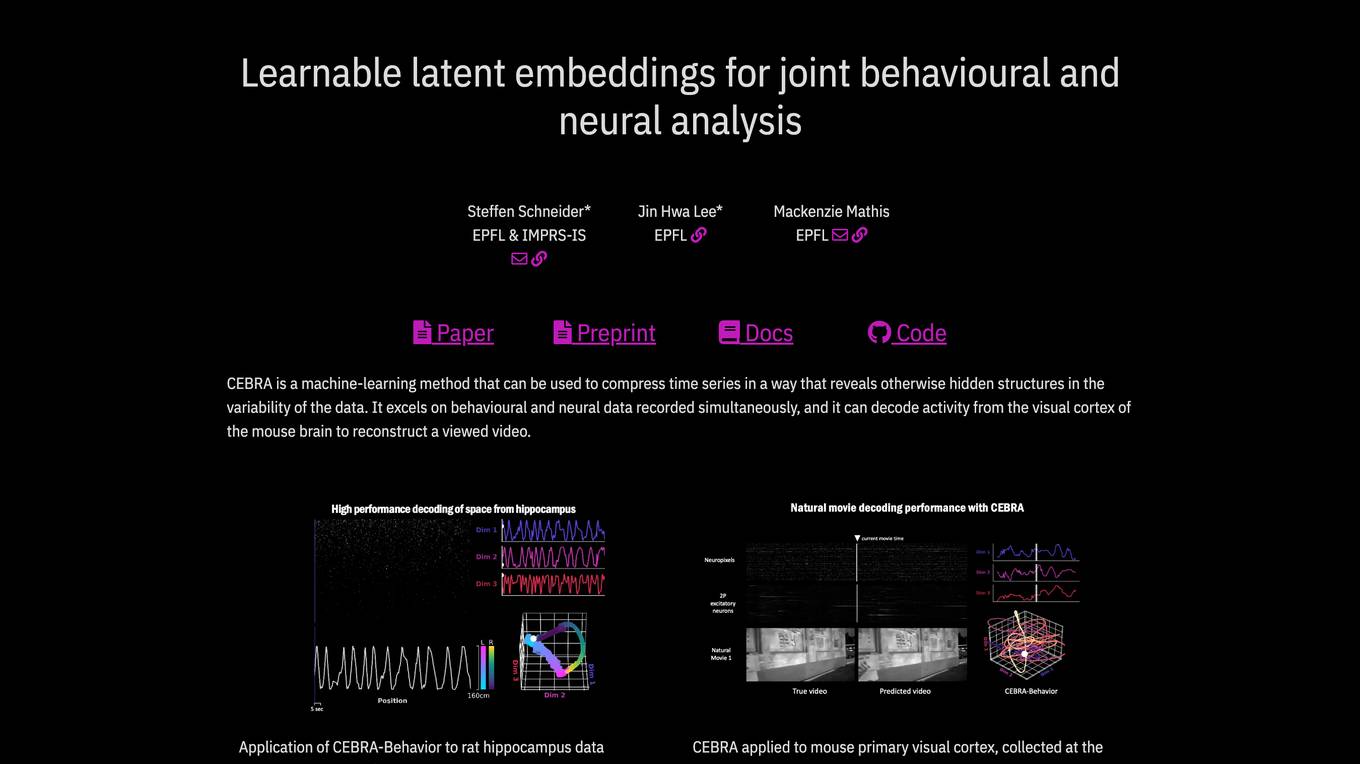
CEBRA
CEBRA is a self-supervised learning algorithm that provides interpretable embeddings of high-dimensional recordings using auxiliary variables. It excels in compressing time series data to reveal hidden structures, particularly in behavioral and neural data. The algorithm can decode activity from the visual cortex, reconstruct viewed videos, decode trajectories, and determine position during navigation. CEBRA is a valuable tool for joint behavioral and neural analysis, offering consistent and high-performance latent spaces for hypothesis testing and label-free usage across various datasets and species.
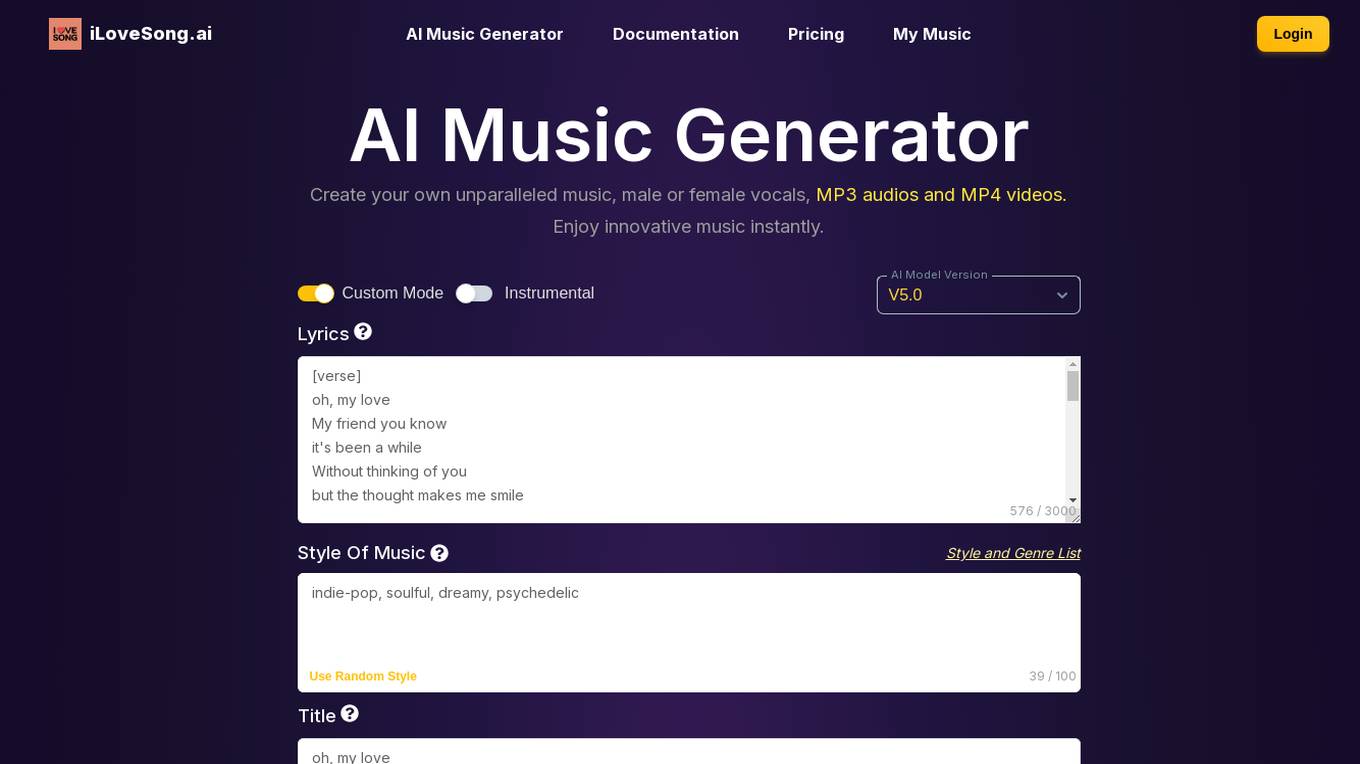
iLoveSong.ai
iLoveSong.ai is an AI music generator application that allows users to create original AI songs based on user input. It offers features like generating complete songs in minutes, demonstrating various music styles for educational purposes, creating custom music for content creators, producing soundscapes for game development, and more. Users can choose from different subscription plans to access various features and benefits. The application is designed to break barriers between users and the music they dream of making, requiring no instruments, only imagination.
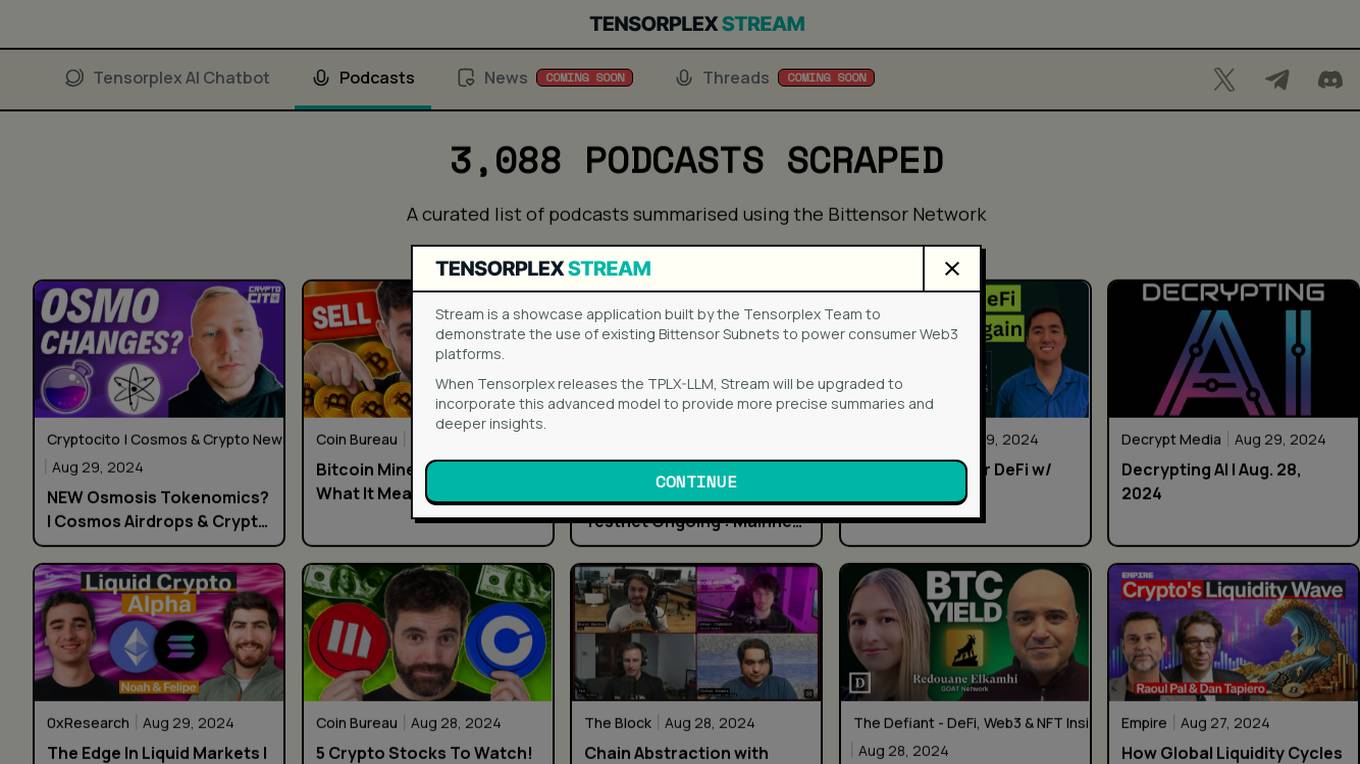
Stream
Stream is an AI application developed by the Tensorplex Team to showcase the capabilities of existing Bittensor Subnets in powering consumer Web3 platforms. The application is designed to provide precise summaries and deep insights by utilizing the TPLX-LLM model. Stream offers a curated list of podcasts that are summarized using the Bittensor Network.
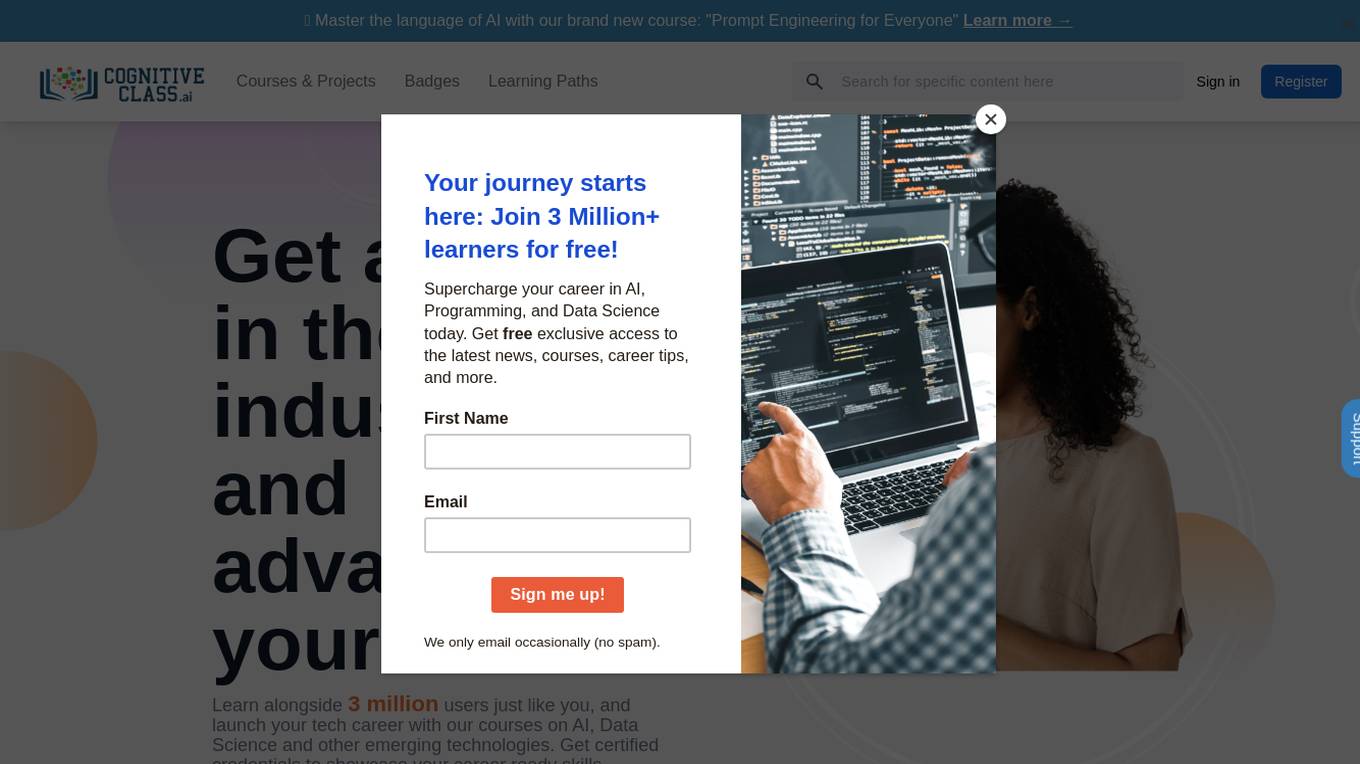
AI Learning Platform
The website offers a brand new course titled 'Prompt Engineering for Everyone' to help users master the language of AI. With over 100 courses and 20+ learning paths, users can learn AI, Data Science, and other emerging technologies. The platform provides hands-on content designed by expert instructors, allowing users to gain practical, industry-relevant knowledge and skills. Users can earn certificates to showcase their expertise and build projects to demonstrate their skills. Trusted by 3 million learners globally, the platform offers a community of learners with a proven track record of success.

Identable
Identable is an all-in-one AI-powered platform for social media marketing solutions, specializing in personal branding and social media management. It offers automated scheduling, real-time performance tracking, personalized content recommendations, and intelligent content optimization. With Identable, users can streamline their social media workflow, maximize visibility and engagement across channels, and access customizable content templates. The platform also provides detailed analytics and insights to help users optimize their social media strategy and demonstrate the impact of their efforts.

ChatGPT
ChatGPT is a large language model developed by OpenAI. It is designed to understand and generate human-like text, and can be used for a variety of tasks such as answering questions, writing stories, and translating languages. ChatGPT is free to use, and can be accessed through a web interface or via an API.
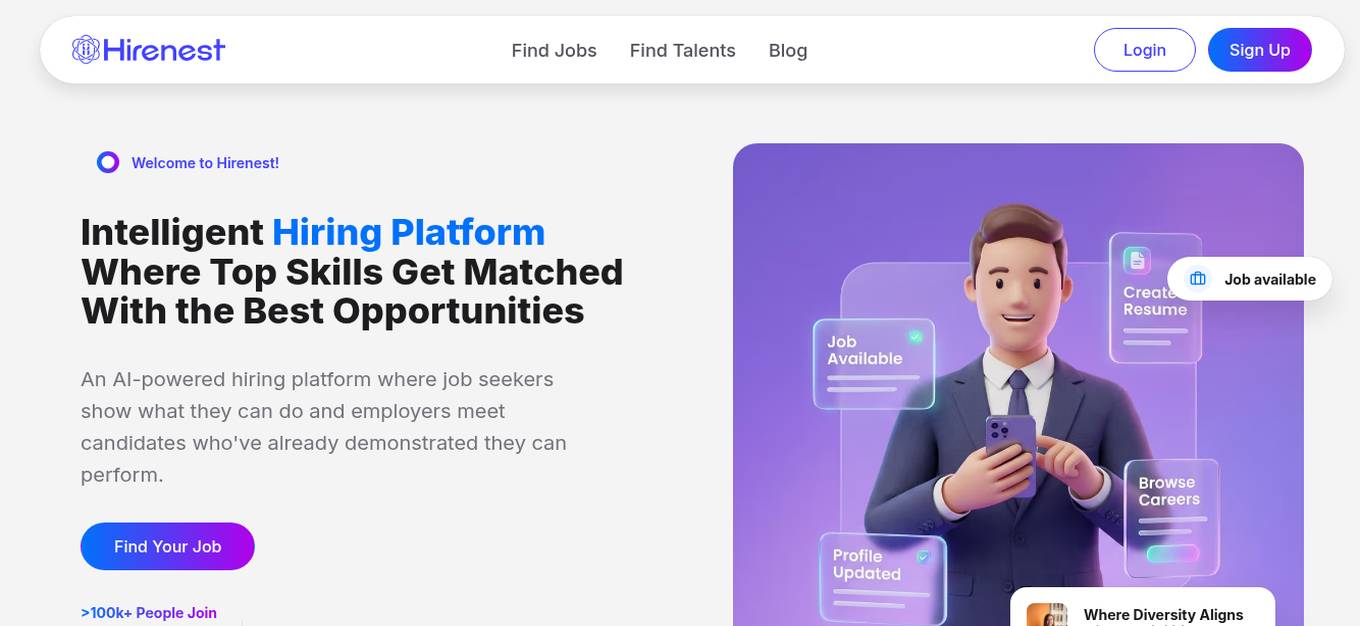
Hirenest
Hirenest is an AI-powered hiring platform that connects job seekers with employers through skills-based assessments. Job seekers showcase their abilities upfront, while employers receive pre-screened candidates ranked by demonstrated performance. The platform offers features such as AI video interviews, MCQ assessments, and open-ended questions to evaluate candidates. Hirenest aims to revolutionize the traditional hiring process by focusing on skills rather than resume formatting, providing personalized career insights, and facilitating faster, data-driven hiring decisions.

Poker Bot AI+
Poker Bot AI+ is an advanced poker AI application that offers fully automated poker bots powered by neural networks and machine learning. The application provides a suite of products to enhance poker gameplay, including automated online poker bots, AI advisor PokerX, Poker Ecology service, poker skill development with AI-guided tips, and Android-based poker farms on emulators. It supports various poker games and rooms, ensuring optimal decision-making for players. The software guarantees secure gameplay by emulating human behavior and safeguarding user identity. Before purchasing, the effectiveness of the poker bot is demonstrated privately. Poker Bot AI+ aims to revolutionize the poker industry with cutting-edge AI technology.
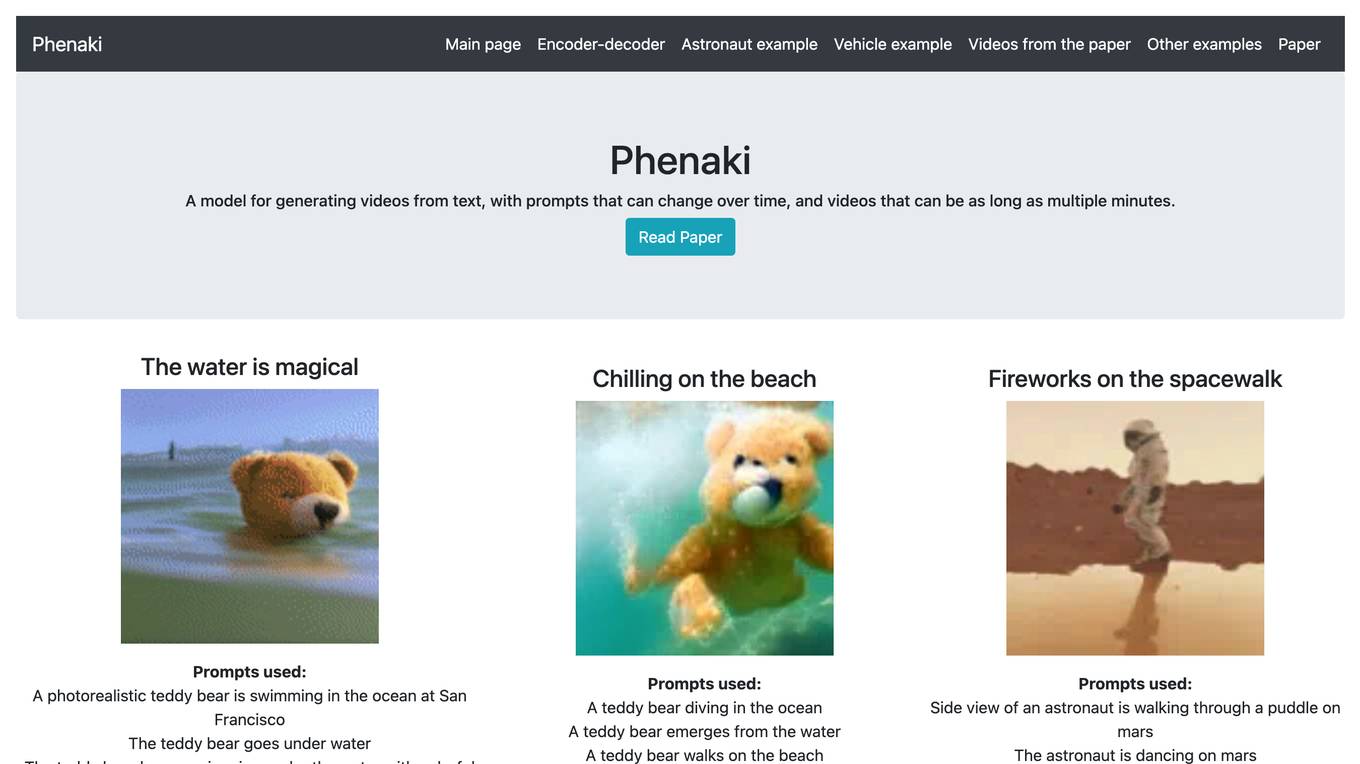
Phenaki
Phenaki is a model capable of generating realistic videos from a sequence of textual prompts. It is particularly challenging to generate videos from text due to the computational cost, limited quantities of high-quality text-video data, and variable length of videos. To address these issues, Phenaki introduces a new causal model for learning video representation, which compresses the video to a small representation of discrete tokens. This tokenizer uses causal attention in time, which allows it to work with variable-length videos. To generate video tokens from text, Phenaki uses a bidirectional masked transformer conditioned on pre-computed text tokens. The generated video tokens are subsequently de-tokenized to create the actual video. To address data issues, Phenaki demonstrates how joint training on a large corpus of image-text pairs as well as a smaller number of video-text examples can result in generalization beyond what is available in the video datasets. Compared to previous video generation methods, Phenaki can generate arbitrarily long videos conditioned on a sequence of prompts (i.e., time-variable text or a story) in an open domain. To the best of our knowledge, this is the first time a paper studies generating videos from time-variable prompts. In addition, the proposed video encoder-decoder outperforms all per-frame baselines currently used in the literature in terms of spatio-temporal quality and the number of tokens per video.
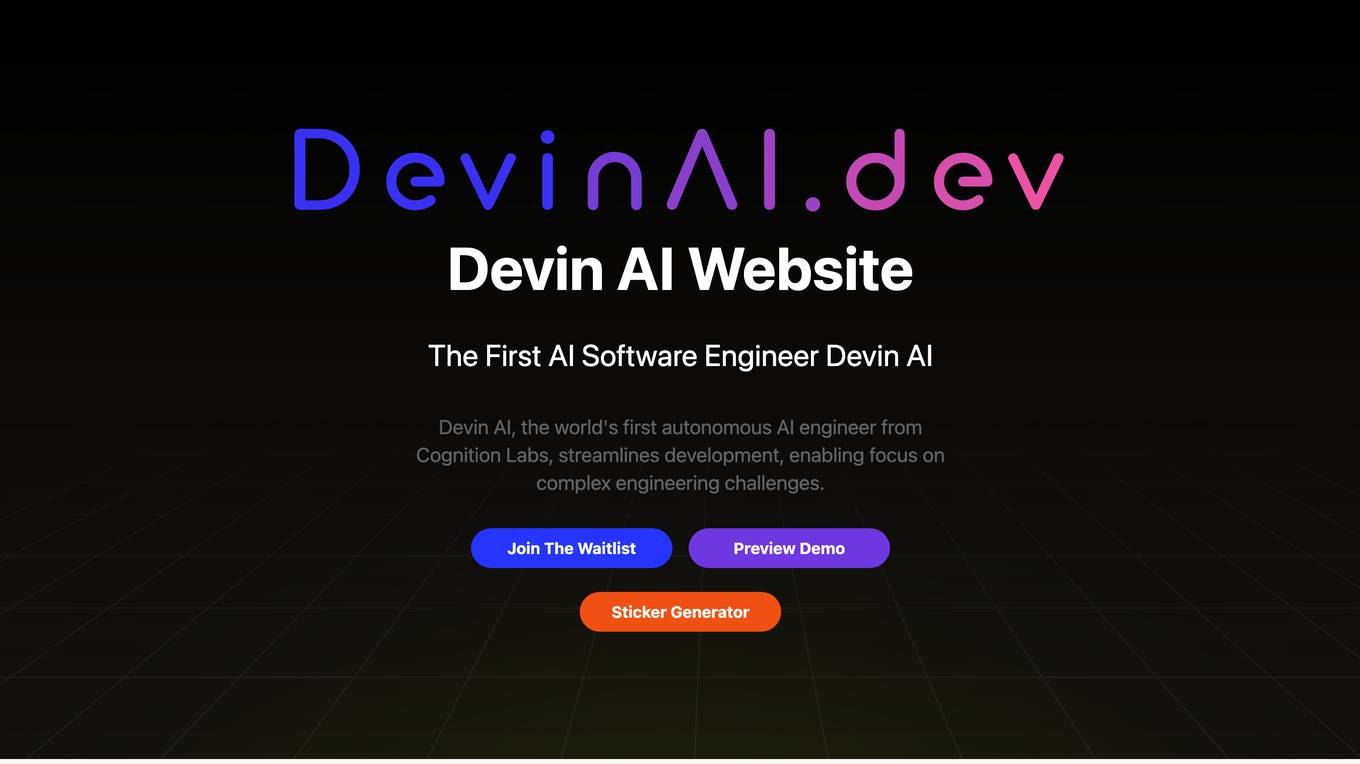
Devin AI
Devin AI, developed by Cognition Labs, is the world's first fully autonomous AI software engineer. It streamlines software development by handling complex tasks, allowing engineers to focus on more challenging aspects. Devin AI possesses advanced programming skills, can manage complex tasks, understands and learns contextually, integrates with developer tools, and offers collaborative features. It can build and deploy applications, detect and fix bugs, contribute to open-source projects, train AI models, and handle GitHub repositories. Devin AI has demonstrated strong performance in issue resolution, surpassing previous AI models. It is currently in early access, with plans for future enhancements and integration with various development tools and platforms.
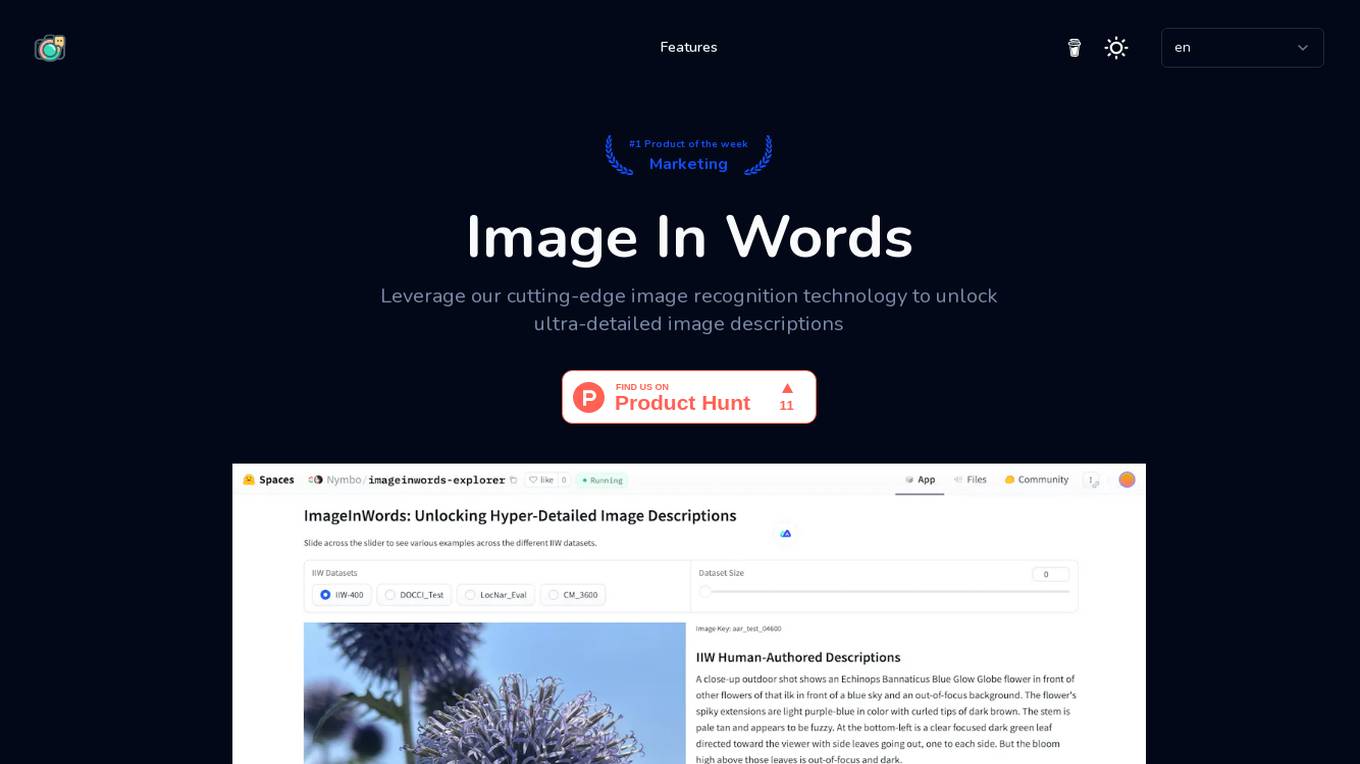
Image In Words
Image In Words is a generative model designed for scenarios that require generating ultra-detailed text from images. It leverages cutting-edge image recognition technology to provide high-quality and natural image descriptions. The framework ensures detailed and accurate descriptions, improves model performance, reduces fictional content, enhances visual-language reasoning capabilities, and has wide applications across various fields. Image In Words supports English and has been trained using approximately 100,000 hours of English data. It has demonstrated high quality and naturalness in various tests.

GenInnov
GenInnov is a generative innovation fund that provides a platform for investors seeking to be at the forefront of technological advancement. The fund invests in companies driving transformative change across multiple sectors and geographies, prioritizing material innovations with demonstrable profitability and global reach. GenInnov operates with a research-driven approach, focusing on investing in material innovations that are monetizable, profitable, and transformative, rather than incremental. The fund looks at various domains such as technology, robotics, consumer electronics, biotech, healthcare, mobility, and clean tech, aiming to amplify human creativity through machine intelligence.
0 - Open Source AI Tools
1 - OpenAI Gpts
TuringGPT
The Turing Test, first named the imitation game by Alan Turing in 1950, is a measure of a machine's capacity to demonstrate intelligence that's either equal to or indistinguishable from human intelligence.